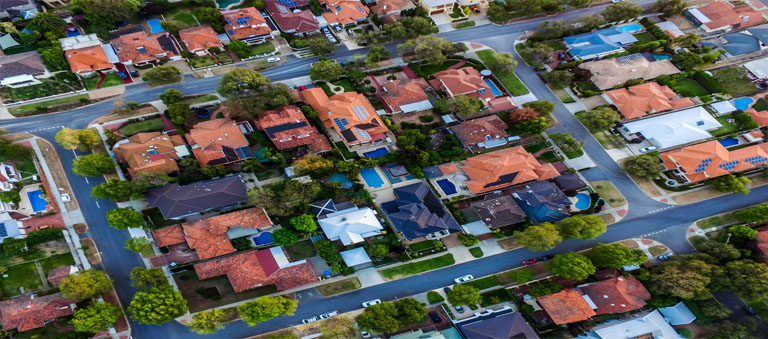Month: March 2021
NEW Superannuation Contribution Caps from 1 July 2021

Since 2017 Australia’s superannuation concessional contributions cap has remained steady at $25,000 for all ages. It has been announced that from 1 July 2021 new indexed changes will see the concessional contributions cap rise from $25,000 to $27,500 for all ages. This means that a cap of $27,500 of your concessional contributions will be tax-deductible.
Concessional contributions include employer contributions and salary sacrifice contributions, as well as personal contributions claimed as a tax deduction. It is important to remember that all concessional contributions – from any and all funds you hold – are added together to determine whether your amount falls below or above the concessional contributions cap.
In addition, Australia’s non-concessional contributions cap limit will increase from $100,000 to $110,000 from 1 July 2021.
Non-concessional contributions are your after-tax income contributions and are not taxed in your superannuation fund.
A superannuation fund member who was under 65 at the start of the year could benefit from the bring-forward rule change which will see the non-concessional contributions cap rise from $300,000 to $330,000 from 1 July 2021.
The bring-forward rule allows under-65s to contribute up to three years’ worth of after-tax (non-concessional) contributions in a single year. If your total superannuation balance is less than the non-concessional threshold and you are deemed an under-65, then you may use the bring-forward rule.
Finally, the non-concessional threshold or general transfer cap will change from $1.6 million to $1.7 million from 1 July 2021.
For those superannuation fund members using the bring-forward rule, the non-concessional threshold will require them to think about their timing strategy – making contributions before and after 1 July 2021 – to maximise their superannuation balances.
Remember to consider small amounts you might have contributed throughout the year that could impact your cap.
Consult YML Group to help you review your 2020-21 contributions and manage the timing of your contributions – and their cumulative effect on your superannuation balance – under the changes to be applied from 1 July 2021.
How can YML help?
Talk to our YML Super Solutions Team today to see how YML Group can assist you with your SMSF. For more information, view our website and contact us on (02) 8383 4400 or by using our Contact Us page on our website.
CBA has increased its 4-year Fixed Rate – Is now the time to fix your loan

On 2 March 2021, the Reserve Bank of Australia (RBA) held interest rates at 0.1 per cent. Rates continue to stagnate and are unlikely drop again. Homeowners and property investors should consider taking the time now to examine locking in a fixed rate on their loans.
Why move to a fixed loan?
- Banks are currently offering some of the lowest fixed rates on record – under 2.0%
- Owner-occupiers can benefit from very low fixed rates advertised in the market
- Borrowers with low loan-to-value ratios can benefit from lowest rates
NOW seems to be a time for healthy optimism about fixed loans.
So long as the Reserve Bank of Australia continues to broadcast that the official cash rate will remain at current low levels for the foreseeable future, is it time for you to fix your loan?
To help you decide whether to fix your loan, consult YML Group for expert financial advice. With expert financial advice, a fixed loan can be an attractive proposition and might well work for you.
How can YML help?
Talk to our YML Finance Team today to see how YML Group can assist you with your home loan. For more information, view our website and contact us on (02) 8383 4400 or by using our Contact Us page on our website.
Land Tax NSW – Have you registered? Will you pay a surcharge?

If you own or jointly hold a property in NSW that is not your principal place of residence – that is, your home – on 31 December in any year, then you may be liable to pay land tax to Revenue NSW. Land tax is payable on the total taxable value of your land exceeding the General threshold of $734,000 in 2020 and of $755,000 in 2021. You do not have to be earning income from a property to be liable for land tax.
Land Tax
You do not need to receive a Notice of Assessment for land tax before registering. If you are liable for land tax and do not register, you may incur interest and/or penalties. To engage YML to register you for land tax with Revenue NSW, go to https://app.hellosign.com/s/6iABAMQh
When is it required?
Land tax is levied on NSW landowners at midnight (12am) on 31 December of each year and is payable on land values exceeding the General or Premium thresholds:
General threshold for 2021 – $755,000
Premium threshold for 2021 – $4,616,000
How much is it?
The Valuer General imparts Revenue NSW with land values which are determined on 1 July each year. Your unimproved land’s value is taken and thereon a calculation using the relevant NSW land tax rate is made to work out your land tax amount.
Land tax on a property’s value over the General threshold amount is $100 plus 1.6 per cent of land value above the threshold and up to the Premium threshold.
Land tax on a property’s value over the Premium threshold is $61,876 plus 2.0 per cent of land value above the threshold.
Is your registration correct?
It is important to register your land ownership status accurately. A correct registration can avoid errors in your Notice of Assessment.
If you move out of your home and lease it, you may no longer claim a residence exemption, so make sure your registration details are updated. You might also consider clarifying the type of trust in which your land is held; declaring company group structures accurately; and, declaring foreign person status if applicable.
Should there be an error in your Notice of Assessment, you may lodge an application for a reassessment or, if necessary, lodge an objection.
SURCHARGE Land Tax
You may be liable to pay a surcharge on residential property you own if your discretionary trust holding the property is deemed a ‘foreign person’.
When is it required?
Residential property and/or land held in trust wherein any person is deemed to be ‘foreign’ – a trustee ‘not ordinarily resident in Australia’ – and who holds a ‘substantial interest’ of 20% or more, including beneficiaries of a trust* – means the trust is liable to pay a surcharge land tax.
* For a full definition of ‘foreign person’, see https://www.revenue.nsw.gov.au/help-centre/resources-library/g009
How much is it?
Two surcharges are payable by a ‘foreign person’ owning a residential property in NSW:
- Surcharge Purchaser Duty – currently 8% of the market value of the residential property – payable once upon acquisition.
- Surcharge Land Tax – currently 2% of the unimproved value of the residential land – payable annually on such land owned as at 31 December each year.
Where it is the case that a trust deed includes a ‘foreign person’, a trust may be varied by drawing up a Deed of Variation to exclude any foreign party from benefiting from a trust. You might like to consider your trust deed this year but remember to amend it prior to 31 December 2021.
Consult YML Group for an assessment of the ‘foreign’ status of your trust. A Deed of Variation may be used – going forward – to reduce and/or exempt your trust’s surcharge liabilities.
To engage YML to create a Deed of Variation – NSW Surcharge Land Tax – Already Registered for Land Tax, go to https://app.hellosign.com/s/Lb65Fdsq
To engage YML to create a Deed of Variation – NSW Surcharge Land Tax – Not yet Registered for Land Tax, go to https://app.hellosign.com/s/6TVJ3h6w
How can YML help?
Talk to our YML Chartered Accountants Team today to see how YML Group can assist you with your land tax. For more information, view our website and contact us on (02) 8383 4400 or by using our Contact Us page on our website.


